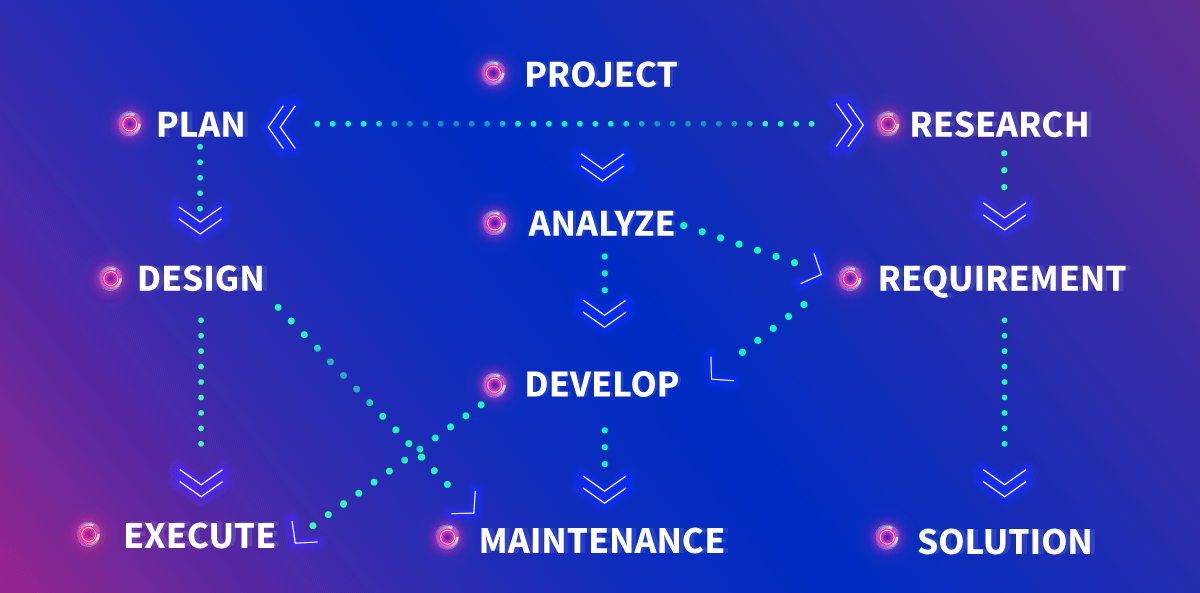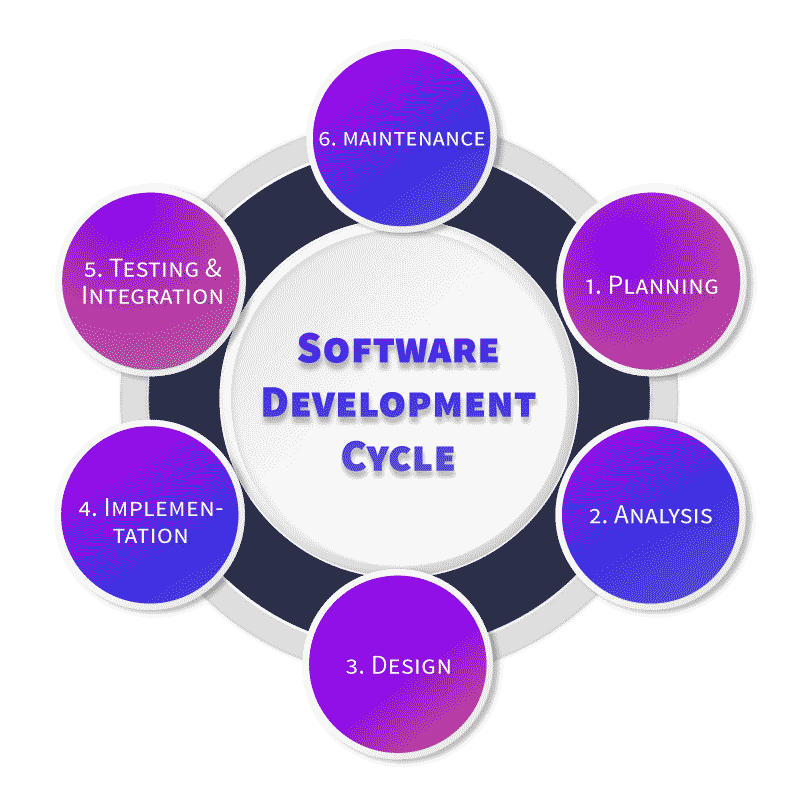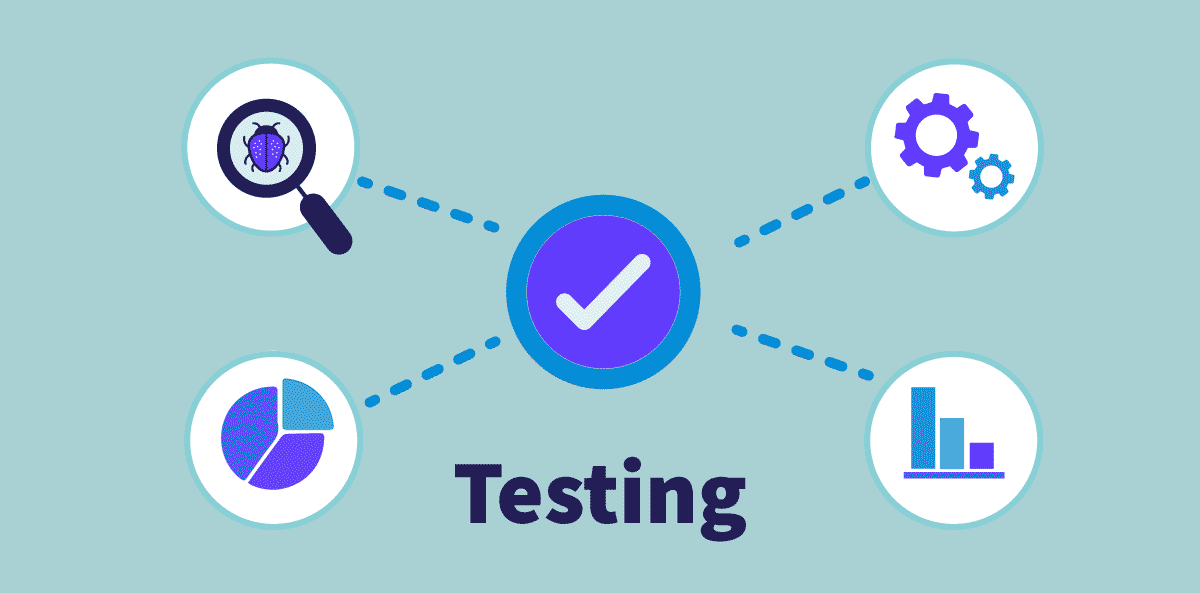
Throughout history, the software industry has been differentiated from other sectors by the short time of its existence. It has attracted the market’s attention to two essential factors; the speed with which it has grown and its scope. In this context, application development has become a perfect alternative for precise solutions while saving time and costs.
Software engineering was born with the first programs for the US Department of Defense during the 1960s software crisis.
There were many issues with software development: it was not delivered on time, very expensive, and progress was difficult to track. As a solution, it was proposed to increase the quality of software development processes, improve the infrastructure and frameworks, and implement testing to respond to the so-called software crisis.
To understand the importance of software testing, we’ll talk about what it is and what phases a programmer follows in the software development process.

In general terms, software development is a programmer’s action to create and implement computer systems and implement them to be used with one or more programming languages designed for a client’s requirements.
The main uses of software development are being carried out by companies creating their web and mobile applications to improve the internal process, customer service, brand visibility, and user experience. These are perfect platforms to publicize their products and services and reach consumers faster.
Software development is driving the creation of corporate applications, both internally and externally. It is a complex process that requires a lot of planning.

Planning consists of a development system or software process life cycle, a structured and well-defined sequence of software engineering stages, to ensure that programs offer a good user experience, safety, efficiency, stability, and reliability.

The stages of software development are planning, analysis, design, implementation, testing and integration, and maintenance. A product’s life cycle is the set of all the phases it goes through. It begins when the idea arises, then the requirements are collected, and it ends when completed, implemented, and delivered to the customer, fulfilling the objective and needs for which it was created.
The software development methodology is a systematic way to create and manage a successful project dividing it into smaller modules to standardize how it is administered.
Now let’s talk about the importance of software testing in this process.

Software testing establishes processes, working methods, and tools to identify software defects so they can be corrected before the product is delivered.
Testing is one of the essential activities in developing a project since it enables the processes to guarantee the quality of any development.
Despite being one of the most critical stages of development, it is sometimes done poorly or not.
Testing is crucial because it prevents or corrects possible software deviations before a product is operable.
This activity must be performed in parallel in all project stages, from requirements gathering to follow-up meetings, implementation, and product delivery. If testing is not done in all project phases, it will result in more effort during development and a high economic cost overall.
The main objective of software testing is to detect any errors on time and ensure that the product is generated with a quality standard. The process includes examining, analyzing, observing, and evaluating the different aspects of software development and performance.
In addition, it can provide compliance with specific customer requirements: legal, contractual, or standards, helping to reduce the risk of failures throughout the process.
The main objectives of software testing are:
• System optimization and improvements of some features
• Guarantee the reliability of the product or service
• Find the most defects to correct and eliminate them
• Meet specific standards or requirements
• Check the proper integration of components
• Guarantee the expected behavior of all functionalities
• Improve quality and overall functionality
• Minimize risks in the time and cost of the product
• Support the agile development process
Once the tests are done, the results are delivered to the team, and the necessary improvements are implemented. This ensures that the application is adequate and that customers are satisfied, helping to gain the end user’s trust.
IO Connect Services is a company specializing in professional technology services.
Our team focuses on understanding our customers’ needs and developing the requirements for optimal design, implementation, verification, and deployment of suitable solutions
We incorporate the most advanced techniques and technologies in the development processes, using testing as a parallel continuum to optimize the software process in its life cycle.
Software tests are valuable because they not only increase the return on investment with higher percentages by having a quality product, but today, it is essential to ensure that the software behavior is adequate and the customers are satisfied.
The benefits of software testing are diverse; here is what you should consider:
Testing a project can save the company a lot of money. Software development involves several stages, and the maintenance cost will be much lower if a failure is detected in the initial phases. In the long run, you are saving because you are selling software that does not need constant repair or unnecessary expenses in customer support.
In a digital world, we know that there are a lot of hackers. Companies are attacked yearly, growing exponentially, and increasingly visible to end users. Users need to find reliable products that protect their information.
Software testing helps identify and resolve product vulnerabilities in advance, minimizing media impact and economic losses associated with a security attack.
Software testing allows you to evaluate software usability, determine how elements best interact with the audience, if the content or functionality is right for them, and if the concept is understood. The result is a product that meets your needs, helping to create a good reputation and building a solid customer base.
The goal of every company is to deliver a product or service that meets its customer’s needs and offers a better consumer experience.
The main benefit of software testing is business optimization. It means satisfied customers, customer retention, fewer repair costs, less customer service costs, better quality, more reliable products, and a better reputation and brand image.
In large part, this allows us to develop improvement plans, which help generate loyalty in our current consumers, attract new ones, and improve our processes and services.
The testing phase is part of the overall profit generation strategy. A good product needs less promotion because people will recommend it more easily. The consumer recommendation is the best and most valuable we can get; it is the best advertising tool.
Offering a rigorously tested and guaranteed product means having respect for your customers. That will help retain old customers and acquire new ones.
Software testing is a set of activities that verify if the actual results match the expected results.
It is possible to reduce risks and improve the quality of the product or service, making it more robust against failures and a process that guarantees our software system.
In short, software testing is crucial when planning a project. Undoubtedly, it is better to detect errors at the right time, thus generating time to correct them before the delivery of the product.
Remember that choosing a good software test service with a professional team will ensure a cost-efficient and high-quality product, good user experience, and customer satisfaction.